Irving Berlin: New York Genius’ tells how the songwriting legend, born Israel Beilin in czarist Russia, started on the streets before penning the hit ‘White Christmas’
Anyone who ventures outside during the holiday season is likely familiar with the classic song “White Christmas,” which plays on the radio, in movies and concerts, and almost nonstop in shopping malls. Bing Crosby’s version, first recorded in 1942, is the best-selling single of all time. In a testament to the diversity of the United States, it turns out that this Christmas mainstay was written by the legendary Jewish-American songwriter, Irving Berlin.
Many of Berlin’s other 1,500 songs written over more than six decades have become classics, from “Alexander’s Ragtime Band” to “God Bless America.” This legacy is part of a new Berlin biography, “Irving Berlin: New York Genius,” by James Kaplan.
Published by Yale University Press’ Jewish Lives series, the book shows how young Israel Beilin — born a cantor’s son in czarist Russia in 1888 — immigrated with his family to the United States. In the New World, his musical contributions during a long life of over a century remain as resonant as ever, author Kaplan told The Times of Israel.
Berlin was part of an era that included such fellow luminaries as George Gershwin and Cole Porter. But Berlin’s legacy was summed up by another gifted contemporary, Jerome Kern: “Berlin has no place in American music; he is American music.”
“Berlin occupies a towering place, a place really like nobody else’s,” Kaplan said. “A great talent for the vernacular, a great populist appeal.”
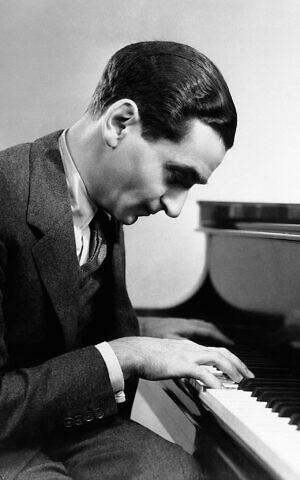
As Kaplan noted, “He was an immigrant Jew who came from nothing, nowhere, had zero money, grew up on the Lower East Side, made his way… He believed in the man and woman on the street and their good taste. I think that is an insight that makes him kind of special among all the great writers in the American songbook.”
Calling Jewish Lives “a wonderful series,” Kaplan welcomed the chance to participate when invited by editorial director Ileene Smith almost 10 years ago. After some back-and-forth proposals, he suggested a Berlin biography, which Smith “liked a lot,” he recalled.
“Berlin was a Jew, proud of it his whole life,” Kaplan said. “He did change his name but there was never any attempt to disguise the fact he was Jewish.”
The book discusses an ecumenical holiday season at the Berlin household with him and his second wife, Ellin Mackay, who was Catholic, sharing Christmas and Hanukkah with their young daughters.
Berlin was “Jewish to his bones, I felt, the core of his being,” Kaplan said. “He was a New York Jew for life, always — a secular Jew, though.”
However, Kaplan said, “I think it’s important to talk about both the simplicity and repetition in Berlin’s lyrics, which I find intensely Jewish, the relation to the liturgy, the relation to Jewish prayer.”
He wrote a song called “Israel” in the years after Israeli independence and, in a chat with Winston Churchill, the prime minister reportedly confused him with Jewish philosopher Isaiah Berlin. Kaplan said that Irving Berlin “loved talking about Yiddish terms,” including with two longtime friends: fellow composer and cantor’s son Harold Arlen and frequent collaborator Fred Astaire.

The project was delayed when the publisher of Kaplan’s two-volume biography of Frank Sinatra asked him to complete volume two in time for the centennial of Ol’ Blue Eyes’s birth in 2015. Kaplan doesn’t mind making a time investment. “I find it’s hard to write a decent book in anything less than two years,” he said.
According to Kaplan, he is the only Berlin biographer to interview two of the composer’s daughters — elder daughter Mary Ellin Barrett, who lives in New York and just turned 93, and second daughter Linda Emmet, 87, who lives in Paris. He explored the Irving Berlin collection of the music division at the Library of Congress, examining artifacts from sheet music to personal letters.
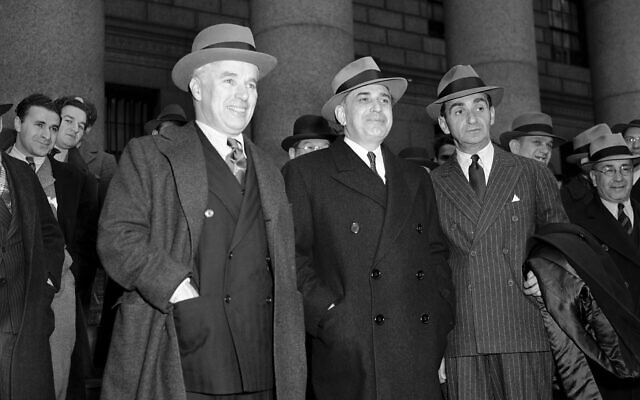
Kaplan felt a connection to the project through his paternal grandfather’s narrative, which he said was similar to that of the Beilin family: a life of poverty in czarist Russia, menaced by pogroms and repression. The Kaplans and Beilins each immigrated to America via Ellis Island, where “Beilin” was changed to “Baline.” On the Lower East Side, “my father’s father grew up probably a couple of blocks from where Berlin grew up,” Kaplan said.
Future composer Israel Baline lost his father, Moses, at age 13. Not wanting to become another mouth to feed in his large family, he left home. “For a 14-year-old to go out to live on the streets, you would pretty much write that person off as a lost cause,” Kaplan said.
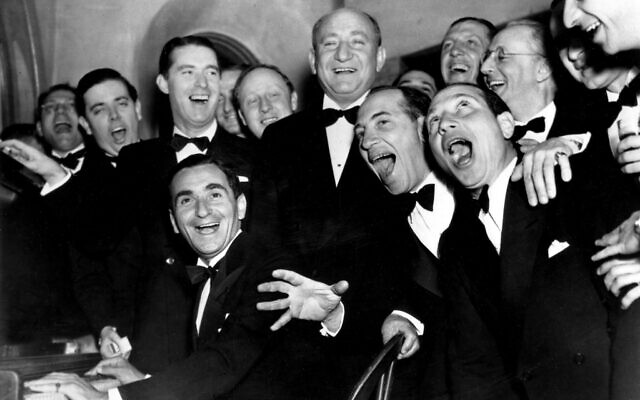
Instead, the teenager became a busker, a singing waiter and then a songwriter. At age 19, in 1907, he penned his first song, “Marie from Sunny Italy.” Four years later, in his early 20s, he got his first taste of international stardom with “Alexander’s Ragtime Band,” jump-starting a career that would last for decades — on Broadway, on the radio, with the Marx Brothers, around the world. He did not forget his family, buying a house for his mother, Leah, and one of his sisters.
Remarkably, Berlin could not read music until ‘probably his late 30s’
Remarkably, Berlin could not read music until “probably his late 30s,” Kaplan said. “He couldn’t read music, he couldn’t write music.” Instead, Berlin would hum a melody or tap a finger on the piano. An assistant — or “musical secretary” — translated this into something harmonized and organized, with Berlin pointing out any errors requiring correction.
“Nobody else ever wrote like that,” Kaplan said, “but it worked because Berlin turned out to have this divine gift for melody that came out of nowhere.”
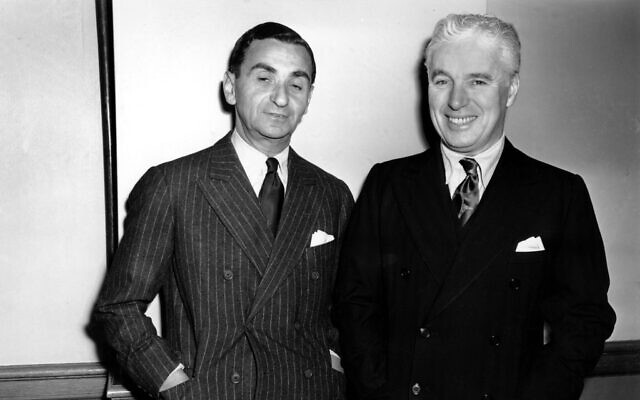
Berlin was well aware of his gift. About “White Christmas,” he legendarily said, “Not only is it the best song I ever wrote, it’s the best song anybody ever wrote.”
The song was featured on the soundtrack of the 1942 Crosby movie “Holiday Inn,” returning to the silver screen in 1954 for Crosby’s “White Christmas.” Kaplan calls it “a deep song” as well as “a deeply sad song” that is “really about, ultimately about, loss.”
Berlin suffered three major losses in life. He lost his father at age 13. His first wife, Dorothy Goetz, contracted typhoid fever in Havana on their honeymoon and died four months later in 1912. When he remarried, to heiress Ellin Mackay, the couple lost their second child, three-week-old Irving Berlin Jr., to sudden infant death syndrome on Christmas Day 1928.
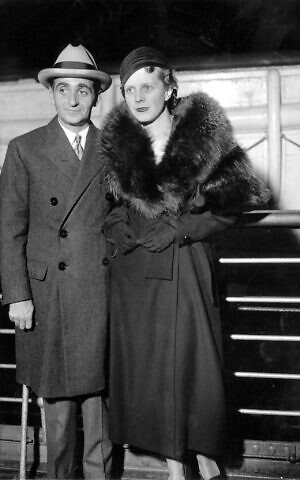
“Every year after that, Christmas for Berlin was a time of deepest sadness,” Kaplan said, calling the song “a dream for a sort of ideal past, ideal experience, intense longing, yearning.”
The Crosby recording sold a landmark 50 million records. “That’s testimony that it’s not just a catchy tune,” Kaplan said. “It’s a testament to something great, something deep — again, something affected by the unconscious as well as the conscious.”
As Kaplan recounted, Philip Roth “kind of mockingly said that he called Berlin a genius, having de-Christed the major Christian holidays, Christmas and Easter, with his two songs ‘White Christmas’ and ‘Easter Parade.’ They had nothing about Jesus… Roth also called ‘White Christmas’ ‘schlockified Christianity.’”
In response, Kaplan said, “I think it’s a deep song, not schlock,” adding, “a number of Christmas carols have no Christ in the music — let’s look at ‘Jingle Bells,’ for God’s sake, or ‘Winter Wonderland,’ any number of a dozen Christmas songs.”
After “White Christmas,” other Jewish-American songwriters penned “a whole spate” of Christmas songs, Kaplan said.
Noting that this had “much to do with the end of World War II and the end of the Depression,” Kaplan added, “Certainly Berlin set a pattern. His whole career, he was nothing if not a hard-headed businessman… What’s not to love about writing hits? Jewish songwriters after WWII, seeing the huge success [of ‘White Christmas’] worldwide — well, they wanted to be successful too.”
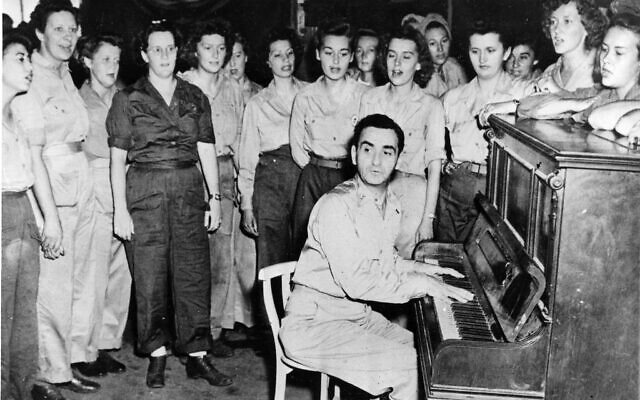
WWII also saw Berlin serve his country, as he had done in World War I, by writing revues for the military. As the worldwide situation became more menacing, he revived a song that he originally wrote for a WWI revue: “God Bless America.” He created a new version for singing star Kate Smith that debuted on her radio show in 1938. From that moment on, Kaplan said, it was “a huge hit” — but it also brought “a huge controversy” with “a good number in the US” feeling “outraged that an immigrant Jew had written this song that many people thought should be a new national anthem.”
Kaplan said that “highly prejudiced people” asked “what right did an immigrant Jew have to write about God, ‘God Bless America?’” But, he said, “a far greater [amount of] Americans saw it as stirring and great and resonant.” He noted the endurance of the song after “the pain and sorrow of 9/11,” and predicted that it will continue to endure.
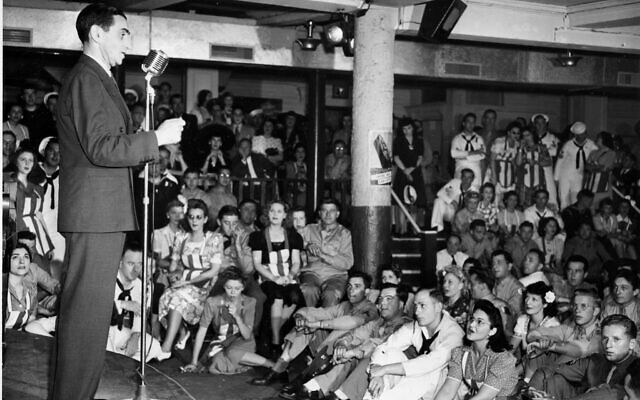
Another Berlin project in WWII was the 300-soldier revue “This Is the Army,” featuring an integrated cast and a movie version starring Ronald Reagan, with proceeds donated to the war effort and Berlin giving life-risking performances in European and Pacific combat zones.
After the war ended, Berlin kept showing the work ethic that Kaplan said marked his life. A 1966 revival of his hit “Annie Get Your Gun” included a new song by the 78-year-old Berlin: “Old Fashioned Wedding.”
“I think [it was] the last good song he wrote,” Kaplan said.
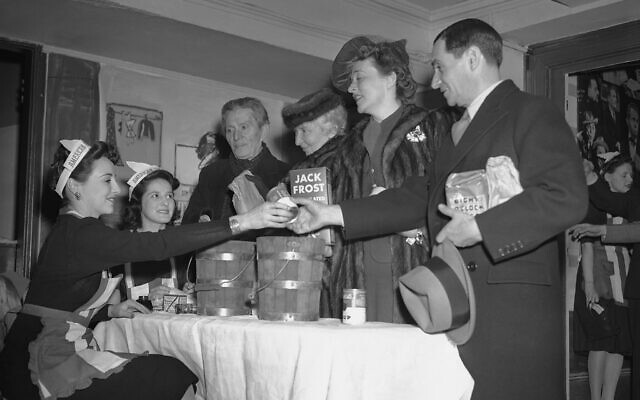
By then, “he was old and tired, and didn’t feel in tune with the times anymore,” Kaplan said, in an era dominated by rock ‘n roll’s increasing popularity, Cold War tensions, the Kennedy assassination and the Vietnam War, “a lot of historical events and trends that darkened the American spirit, and then you take the rapid changes in technology, things just moved faster and felt darker,” Kaplan said.
The author reflected, “Berlin’s view of the world was not left behind, but it was not a worldview shared by generations younger than him. It seemed to many people old-fashioned. In some ways it was.”
“But,” Kaplan said, “the great songs he composed have endured. They refute that idea.”

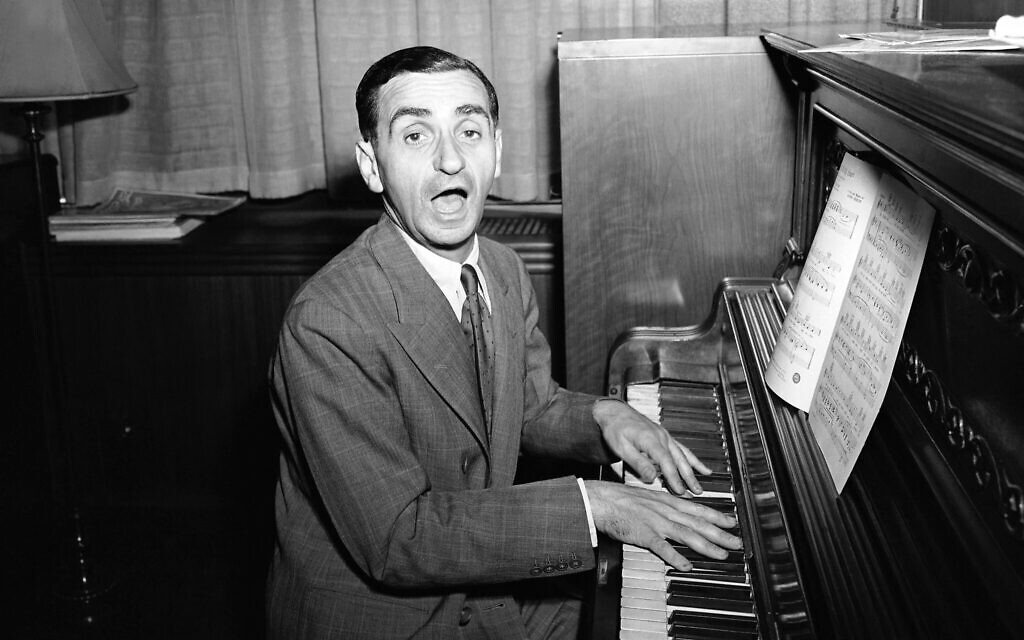






So many seasonal (christmas) songs written by Jews. Ya almost think Santa was Jewish.